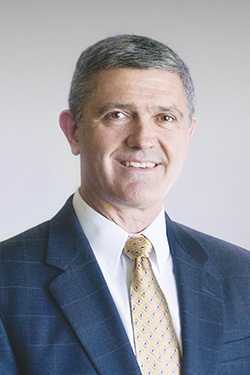Out of Emergency, Leadership (OPINION)
by November 10, 2014 12:00 am 125 views

Early in my military flying career, I encountered a number of leaders who seemed to be able to make decisions in an instant and take action to make bad situations better. I often wondered how those leaders became so good at taking action in a crisis situation.
Over time, I came to realize that it generally boiled down to three things: (1) intimate knowledge of aircraft systems and procedures, (2) keen flying skills and (3) highly integrated teamwork.
Absent any of those three things, it is hard to imagine Capt. “Sully” Sullenberger successfully landing his airliner on the Hudson River in New York. Even with those fundamental factors, surviving a cold water river landing in the middle of a megalopolis, but it happened. How?
While first used to describe military operations, the term VUCA (volatile, uncertain, complex and ambiguous) is frequently used outside the military for situations that demand more of leaders than traditional knowledge, skills and teamwork. “Building the plane as you fly it” is an example of VUCA, because it requires more than ordinary decision-making and operating.
Leaders in this environment must create knowledge and expertise to face new and unexpected challenges. Harvard Prof. Ron Heifetz has called this complex process “adaptive leadership.” For a VUCA leader, the stakes are higher, but the potential to discover and create unique solutions is great. In my opinion, the operational world of health care offers a great example of the need for VUCA leadership.
Visit almost any hospital on a Friday evening, and you’ll likely see medical teams operating in a VUCA environment. Emergency room doctors, nurses and technicians leverage and synthesize traditional knowledge, skills and teamwork to solve challenges for which they were never trained. Manuals and medical school lectures, policies and procedures, are insufficient for the VUCA environment.
Instead, these teams apply an integrative and synthetic approach to thinking and operate differently. From my experience, the VUCA environment looks like this: [(primary crisis + complicating factors) x secondary crisis] x adaptive opportunities. The key to leading in a VUCA environment is putting it all together. Here’s an example.
A primary crisis generally requires a straightforward technical response that every medical team is trained to handle (e.g., a broken arm, a lacerated skull, high fever, etc.). Complicating factors change the scale or seriousness of the situation in an additive manner (i.e., high fever in the elderly or infants). Additional knowledge, skill and coordination are required and most medical teams handle such challenges by simply working harder.
The VUCA environment emerges when a secondary crisis combines with existing factors to create something entirely new. Most teams apply traditional knowledge, skills and abilities to the new problems, seeking greater efficiency, scale or scope.
However, this new situation has no known technical response, and existing procedures and training end up being inadequate. The VUCA leader will create new solutions from existing knowledge, skills, and abilities. This leader opens the door to thinking and actions not ordinarily considered or welcomed.
I am not a health care expert, but the Ebola crisis seems to present a very real and ongoing opportunity for VUCA leadership. Ebola is a highly infectious and contagious global medical crisis being addressed by health care knowledge, skills and teamwork designed for traditional medical emergencies.
From a VUCA, or “adaptive leadership” mindset, the danger posed by the Ebola crisis creates an opportunity to create new ways of addressing global health challenges. If there is a silver lining to the ongoing Ebola crisis, it may be that volatile, uncertain, complex and ambiguous situations like this present opportunities to be seized.
Of course, medical leaders and policy makers must address the very real and present dangers of this serious virus, but now may be the time to adapt traditional medical knowledge and practices to make global health systems more resilient in the future.
Capt. Steve Trainor (U.S. Navy, retired) holds a Ph.D. in sociology and serves as director of research for The Soderquist Center in Siloam Springs. He contributes to the Northwest Arkansas Business Journal on topics of leadership, ethics and values.
